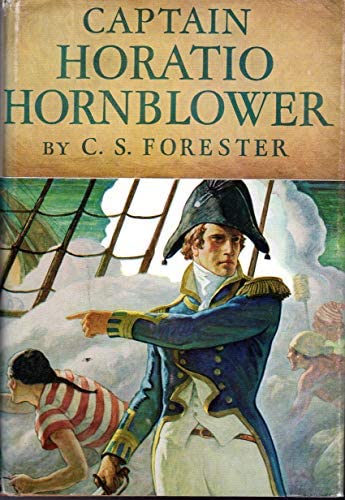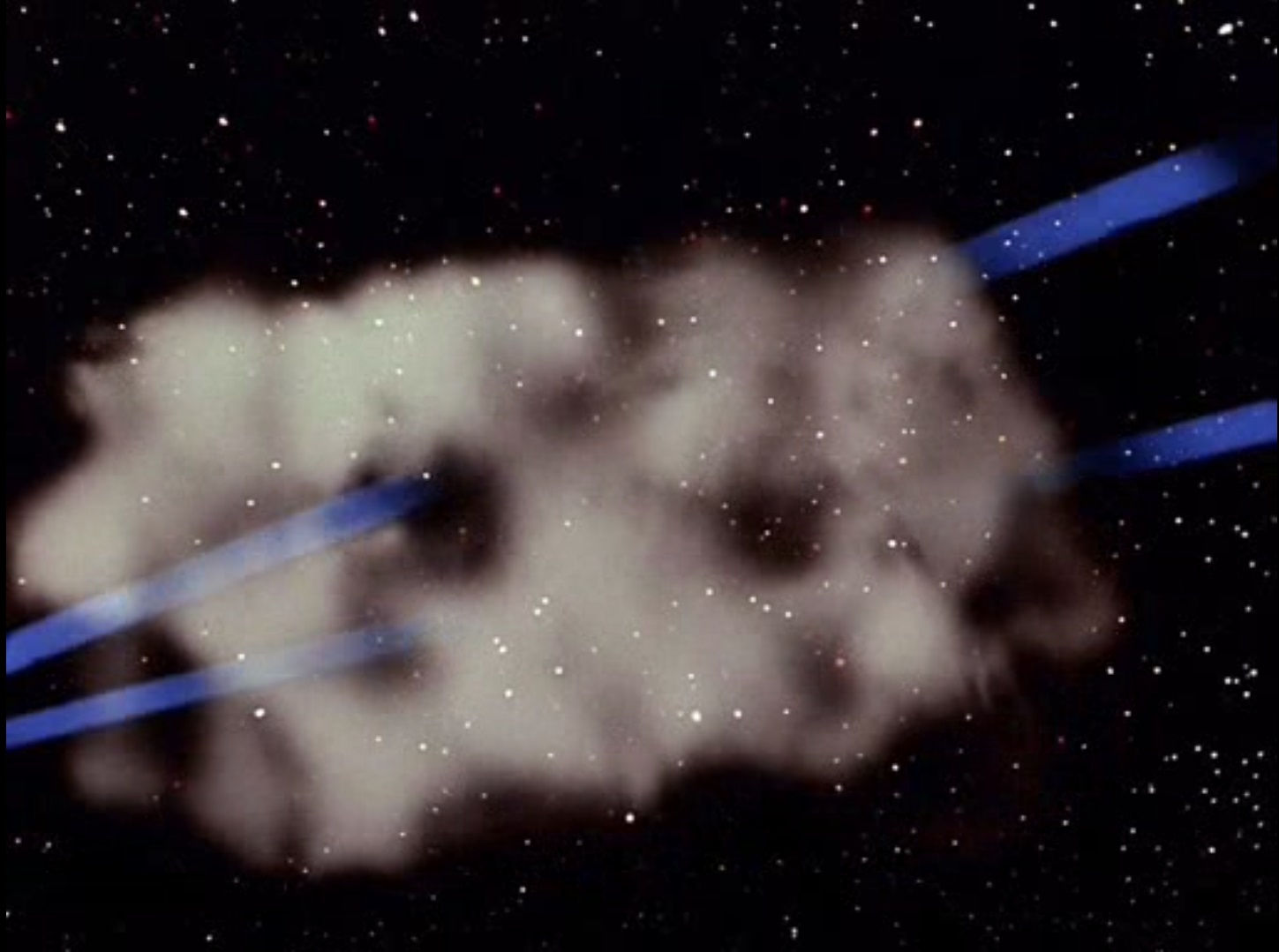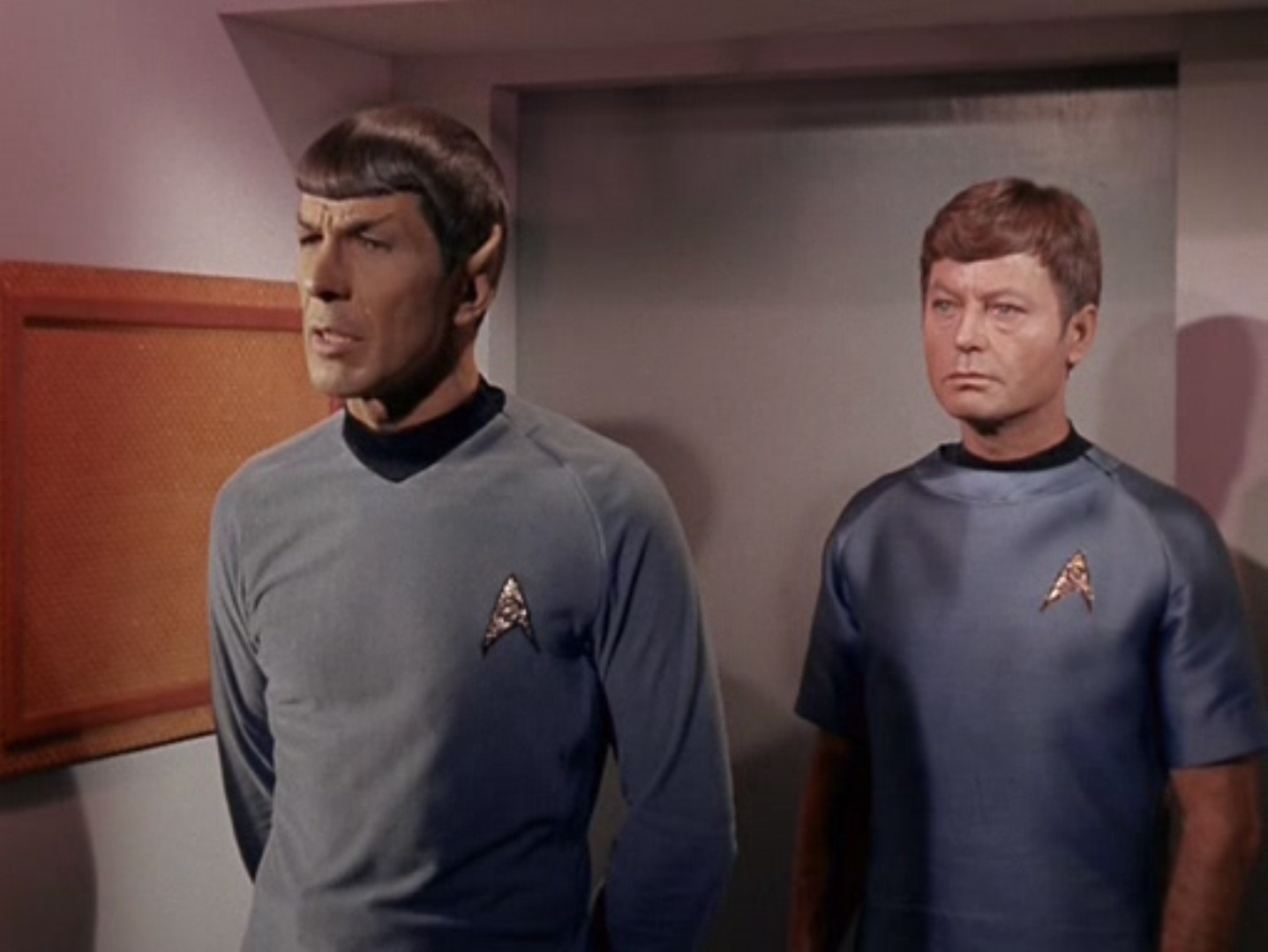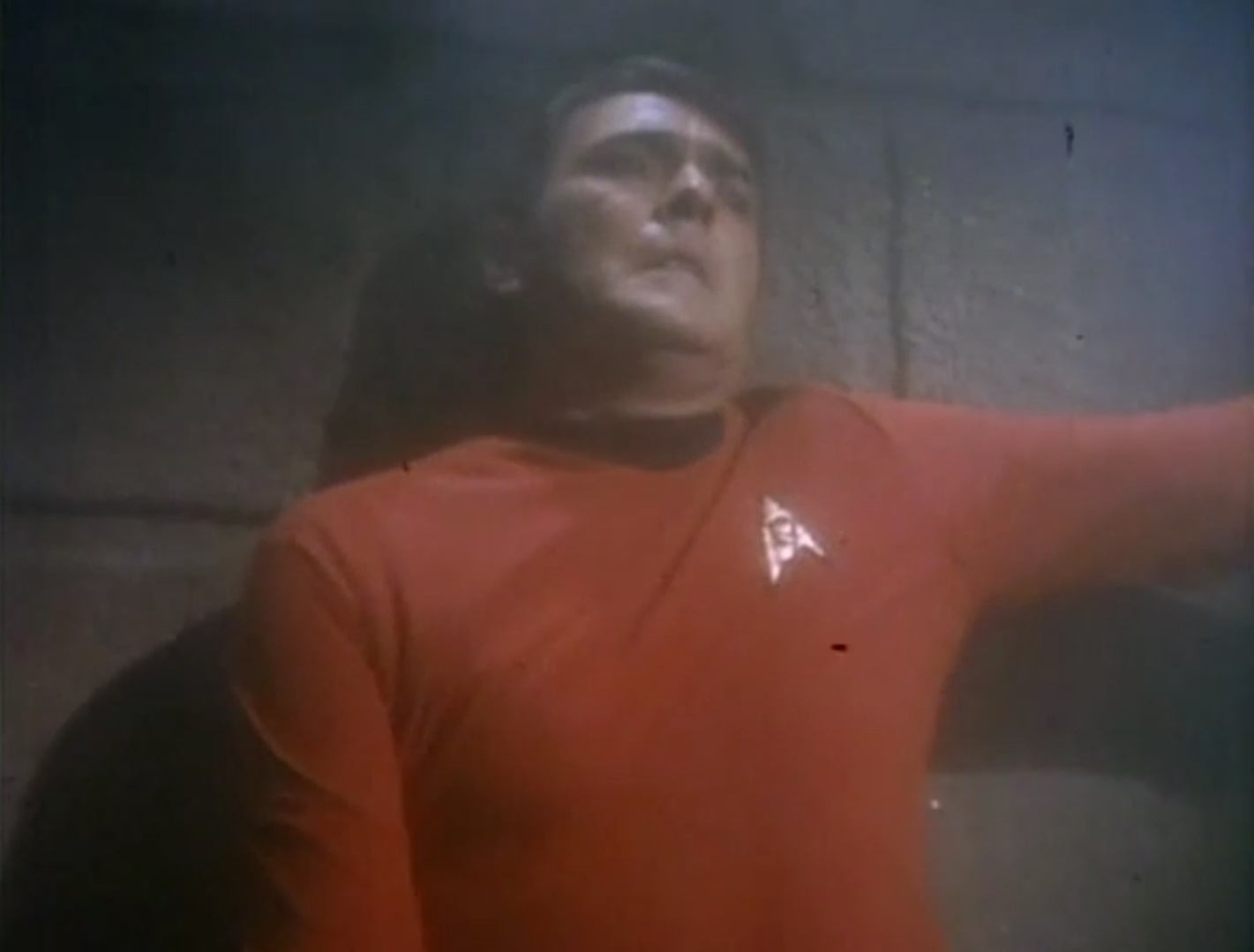
by Amber Dubin
Time travel is a concept which every science fiction show must one day address. Yet, unlike the plausibly possible science of navigating space-travel, successfully representing time-travel comes with much greater risk, not only of straining credulity, but of destroying continuity: tearing a time-line—or in this case a plot line—to ribbons. "Assignment: Earth", the last episode of Star Trek's second season does a better job of avoiding the pitfalls of "Tomorrow is Yesterday" and "The City on the Edge of Forever," though it is not without its foibles.

We begin with the announcement that the crew has used the technique they discovered by accident in "Tomorrow is Yesterday" to travel to the past, on purpose this time, to the year 1968 in a cultural observation mission. This mission starts going off the rails pretty much immediately as the ship starts to shake violently. Attention is drawn to the transporter room, where it is found that the transporter pad is intercepting a transporter beam of unknown origin.
Upon the pad materializes Robert Lansing as Gary Seven, a mysterious, cat-carrying, super secret agent sent from a distant "advanced civilization" in order to save planet earth. Captain Kirk is immediately suspicious of the man and the tiny silver-collared black cat, and he orders him to surrender himself for observation while they verify his lustrous claims. Seven briefly appears to comply, despite his insistence that he must be allowed to continue to beam down to the planet, or face the annihilation of earth and life as they know it. He suddenly changes his mind and he and the cat, who he refers to as Isis, launch into an attack where he puts down an entire room full of officers and repels even Spock’s Vulcan nerve pinch before being subdued by the stun of Kirk's phaser.
It then follows that Gary Seven possesses powers to back up his claim as earth's clandestine savior. He easily manages to free himself from the brig using a wand that both deactivates force fields and causes officers he targets to fall into very pleasant-looking slumbers.

It beats being judo chopped!
As he's forging a path to his escape as easily as a knife through butter, the senior officers obliviously discuss the plausibility of his claims and the risks to allowing him to carry out his mission. The dilemma, of course, is the paradox faced by all time travelers: not knowing if one's interference will derail or cause the events meant to occur in history as they know it. On the one hand, Seven could be telling the truth and by detaining him they could be dooming humanity to destruction in 1968. On the other hand, coming back to this moment could be a fated occurrence that prevented a lying, intergalactic criminal alien from destroying the earth in the same way. The opinion of the crew seems split down the middle and the discussion goes nowhere. It's worth noting that Isis is completely underestimated throughout, getting cuddled by Spock and allowed to freely roam the ship, despite it being very obvious to this viewer that she is no ordinary feline.

"A most curious creature, Captain. Its trilling seems to have a tranquilizing effect on the human nervous system. Fortunately, of course, I am immune to its effect."
While the crew is distracted, Gary Seven and Isis manage to escape to beam down to their original destination. The episode then shifts from a typical Star Trek episode to a cross between Mission: Impossible, Get Smart! and Mannix, complete with secret agent gadgets, a wise-cracking super computer and a lovely human secretary named Roberta, who's just as charismatic and whip-smart as she is goofy and unique.

At home in the Seven cave.
The supervisory secret agent checks in to his mission to discover that it's all gone wrong and Roberta is there because the agents who hired her and were supposed to be completing the mission were senselessly killed in an automobile accident before they could bring their plans to fruition.

Gary Seven has Roberta Lincoln give dictation to her typewriter.
Thus ensues a cat-and-mouse game between Seven and Isis (who are trying to complete their mission to sabotage a rocket carrying an orbital nuclear bomb) and Kirk and Spock (who are pursuing trepidatiously, not entirely sure whether they should be helping or thwarting the oddly capable team). Roberta's meddling aids both teams in their conflicting missions, culminating in a nail-biting scene where Kirk makes the last minute decision to trust Seven in the end, and the agent swiftly causes a nuclear warhead to detonate harmlessly in mid-air, thus scaring the world out of participating in a fatal arms race.

A genuinely gripping face-off.
The Enterprise's crew then confirms in their history banks that the time-line has been restored and their interference was actually predicted by the details of the event as recorded in history. This episode does not suffer from a rushed nonsensical 'it was all a dream' ending like "Tomorrow is Yesterday," nor did it have the dissatisfying 'they were never there' conclusion of "The City on the Edge of Forever." Instead, this explanation reflects my favorite and most plausible time travel theory: that contamination is impossible because all actions successfully completed by time travellers were fated to occur because they have always occurred and will always occur exactly as they did.
Overall, I'd say this episode passes muster. I only had two personal arguments with it: First, it seemed like Nimoy was the only actor on set who knew how to hold a cat. The cat seemed to begrudgingly tolerate Lansing but it was only purring in Nimoy's arms (I agree, cat). Second, the fact that they chose 1968 as the "most volatile in earth's history" was clearly an arbitrary decision to make a more comfortable crossover with Lansing's backdoor pilot set in modern times.
I'd say in the Star Trek time-line, the Eugenics Wars/WW3 seem like a much more volatile time in earth's history, and I'd argue that they could gain much more insights from directly observing WW1 or WW2. I didn’t like how the author just left a naked bias towards the particular year chosen which I felt could be easily covered up using an easily fictionizable event.
4 stars for the above reasons, and also because I thought downgrading the sentient cat to a humanoid alien woman at the end was disappointing and unnecessary.

Teri Garr is disappointed, too.
Inhumanly Perfect or Perfectly Human?

By Mx. Blue Cathey-Thiele
This episode ties up neatly and happily – on the surface. How much of what we saw is as it seems, though? Gary Seven didn't cause a world catastrophe, and indeed, may have averted one! But the question of who and what he is remains. He claims to be a human, an agent from a planet that is still unknown in the time of the Enterprise. The Kelvans in "By Any Other Name" also scanned as 'perfectly human' and were decidedly not. He's also immune to the Vulcan neck pinch…
And what of Isis? Is this a cat who can turn into a humanoid being? A woman who can turn into a cat? Or a completely separate alien species altogether? Are they partners, or is there a command structure? Perhaps Isis is Gary's handler.
Beyond this, if Gary was part of the same program as his two lost agents, he would be (according to his own description) a descendant of humans taken from Earth six thousand years ago, all raised and trained to operate on a planet that is no longer a home to them. And as Gary told Isis, they don't intend to stay long. Whether he means in the year 1968 or on Earth, the here and now is something he finds almost unlivable. After generations of living away from Earth, would any agent feel at home there? One wonders if he really does have "lots of interesting adventures in store."
A nice bit: while waiting with Spock down in mission control, Kirk’s supplemental log says he has never felt so helpless. Unlike when he followed McCoy to the 30s, he isn't here to correct a problem and set the path of history to right. As heartbreaking as it was to follow through when told "Edith Keeler must die," he was reacting and preventing a worse outcome. A known quantity, as far as he was aware. Unlike then, he doesn't know what, if any, action is necessary – and in that moment there isn't anything in his power that he can do to change things. All that knowledge, technology, and will… and he is left to watch.

Our heroes, helpless.
The whole reason the Enterprise traveled back in time was to observe a time period so tumultuous that either lack of records or sheer incredulity has the crew wondering just how we make it through. Roberta, however, doesn't have the security of hindsight, saying, "We wonder if we're gonna be alive when we're thirty." It's a bleak thought. Kirk may be reliving his history books, but Roberta is there as they are being written. She's frightened and caught off-guard by the strange people and happenings around her, but even so, she adapts. It may hinder Kirk, Spock, and Gary, but over the course of the episode she tries at least three times to get outside help. When she recognizes that Gary has to be lying and is interfering with dangerous things, she tries to talk him out of it, and puts herself in harm's way to physically prevent him from taking action. If Gary is in a spy thriller, Kirk and Spock in an historical drama, then up until nearly the end, Roberta is cast in a horror. Despite this, she manages to stay a cheery person. Surrounded by both normal—as normal as the current world can be—challenges and time travelers, she does her best. She's out of her depth but she still tries.

Roberta takes control of the situation.
Ultimately, the crew of the Enterprise is left with only their original mission to fulfill: they watch. This isn't their time, and they have neither the responsibility nor the means to change it. On the bridge, Lt. Uhura monitors the channels and hears military powers across the globe preparing to respond. Kirk and Spock are equally powerless in the control room as they are in front of Gary Seven's computer. All they can do is listen to Roberta, and step back to allow Gary to finish what he started. The only way out is through.
There was little action from my favorite crew, but within the context of the story, that fit. Gary, Roberta, and Isis were interesting new characters and I would enjoy seeing them again.
3 stars
Colonel Savage

by Lorelei Marcus
I have seen Robert Lansing star in many other shows, from Twelve O' Clock High to the shortlived The Man Who Never Was and even The 4D Man. I have always been charmed by his grave and understated performances. “Assignment: Earth” was no exception; it was delightful to see Lansing as a mild-mannered, cat-petting spy from outer space. My only grievance with the character is that he must live and die within a single Star Trek episode.

Gary Seven, Secret Agent (hey, better than Amos Burke!)
To a degree, the Star Trek setting is a strength. Gary 7 expands the Star Trek universe further beyond the Enterprise, introducing an alien world and beings that even Kirk and Spock can’t find. There is also fun in seeing different SF worlds collide. Two years ago I received audio tapes from England and reports of the new Doctor Who, an ongoing SF show on TV across The Pond. Gary 7 reminds me strongly of the Doctor, with his space-traveling machine and his plucky young human companion. (There are notable differences, of course, like his cat and stun-gun pen gadget, which feels more out of a spy flick than SF). Seeing our space-faring heroes encountering a being reminiscent of the Doctor and witnessing the adventures that ensued was quite amusing. (And sounds like a story I might have to write for the next issue of The Tricorder!)
The tragedy is not just that we only get to see Gary 7 once, but the very limitation of his screen time means his actor doesn't get quite enough time to breathe. Lansing thrives in a starring role where he can mold the show around him to his mood and level. His portrayal suffered for having to split the spotlight with the regular Trek heroes, leaving only glimpses of the potential of what he and the character could have been in their own show. I mourn the loss of what could have been, but for giving me anything at all, I give the episode five stars.
That's a wrap!

by Gideon Marcus
This was the first episode we got to see secure in the knowledge that there will be another season of our favorite science fiction show. I will say this for it—it's different! Sure, we've seen the Enterprise go to past Earth before, and we've seen lots of period pieces (this episode must have been particularly cheap), but the intersection of two powerful races, and the focus for much of the episode on an independent guest star, made for a very unusual experience.
I'm not sure how I feel about it. In some ways, it dragged down the pace of the episode, reducing Kirk and co. into a bunch of bystanders. On the other hand, that's how life is sometimes—you're not always the star. In the end, I'd say this was a successful experiment, but one not likely to be repeated…unless Trek turns into a true anthology show, which I would not necessarily be opposed to.
Some things the show did extremely well. The integration of the very recent Apollo 4 launch was particularly good. I also appreciated the incorporation of Fractional Orbital Bombardment System (FOBS) technology. This is absolutely accurate, though I think only the Soviets actually are testing such a system. Several of their "Kosmos" tests have actually been launches of nukes on rockets that sail into space and then deorbit before completing a first orbit, thus allowing them to land anywhere. It's a terrifying development, and one I hope will be banned if the superpowers update last year's Outer Space Treaty.

We'd probably use a Titan, not a Saturn, but this is a divergent history.
As for how "Assignment: Earth" serves as an ending to Season 2, well, it's kind of an odd duck. It doesn't hit any of the main subjects we've seen thus far—no Klingons or Romulans, no Vulcan notables; just a joyride through time. I feel that the show might have been better served ending on a more Trek-ish episode, something like Mirror, Mirror or Journey to Babel. Instead, we got the 22nd Century's equivalent of Wild, Wild West.
Well, I guess it fits in alright. After all, like the season as a whole, there were high points, low points, but overall, we enjoyed the experience. Moreover, we got to see Robert Lansing, which is appropriate given that Trek cribbed the iconic "Enterprise theme" from Lansing's show, Twelve O' Clock High.
3.5 stars.
Live long and prosper, and we're looking forward to resuming Trek coverage in September!


![[April 4, 1968] Time and time again (<i>Star Trek</i>: "Assignment: Earth")](https://galacticjourney.org/wp-content/uploads/2023/04/680404title1-672x372.jpg)

![[December 22, 1967] In all the old familiar places (<i>Star Trek</i>: "Obsession")](https://galacticjourney.org/wp-content/uploads/2022/12/671222title-672x372.jpg)













